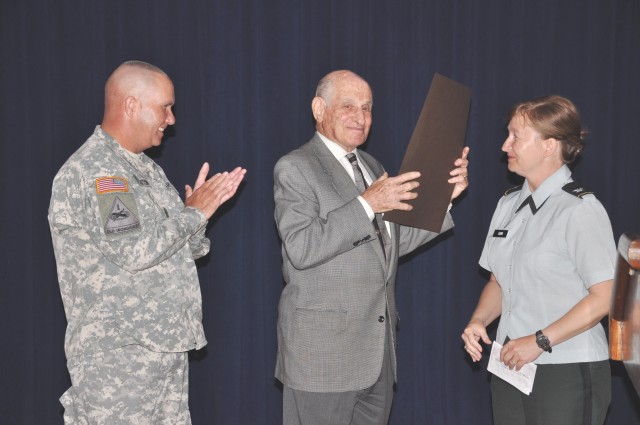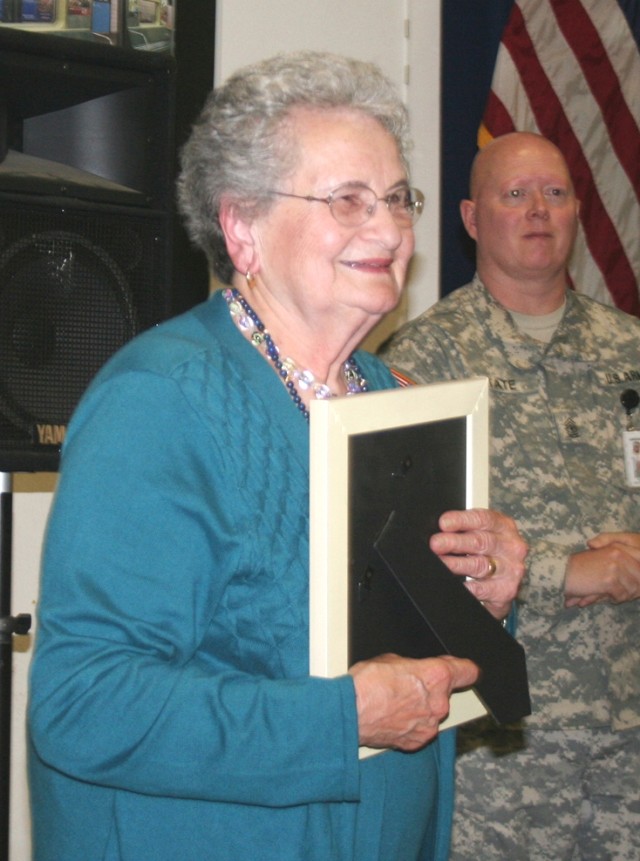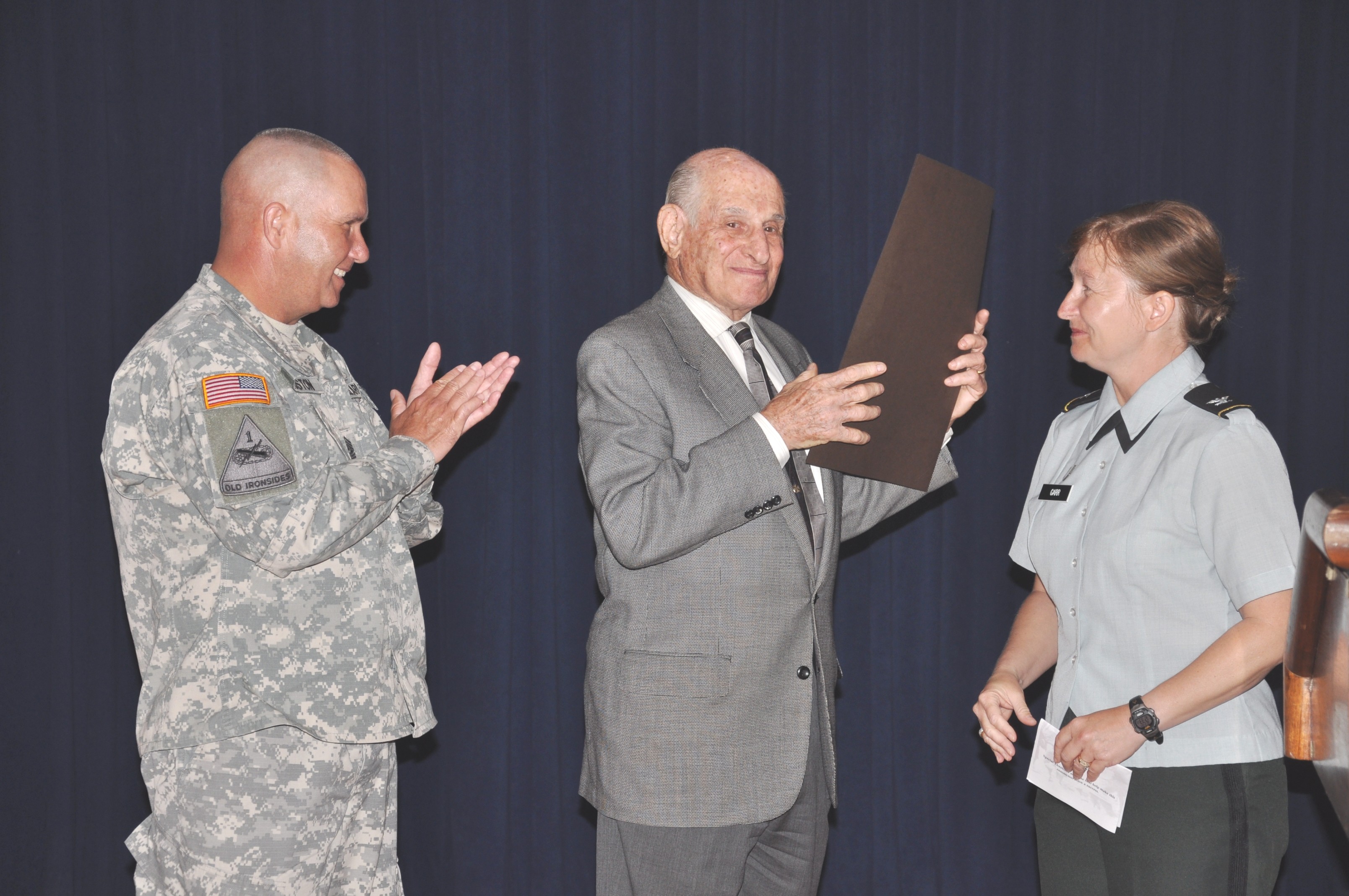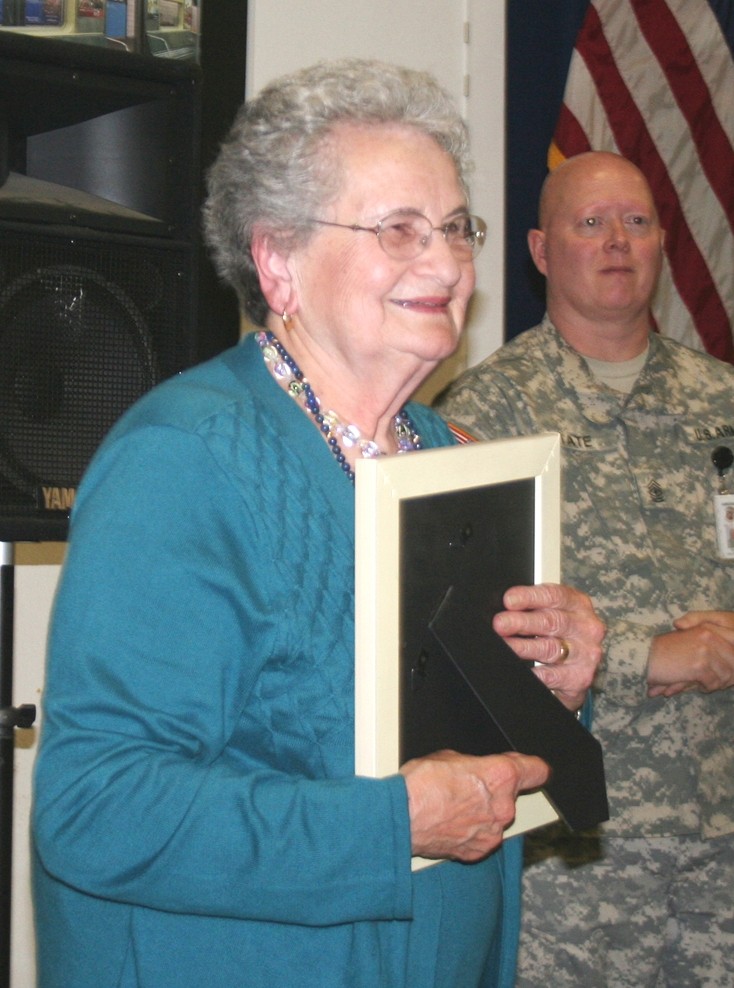FORT SAM HOUSTON, Texas -- Fort Sam Houston Soldiers and civilians learned about the Holocaust during Days of Remembrance ceremonies held throughout the post.
Gerd Miller was the guest speaker for an event held April 21 at the Sam Houston Club.
"Being able to hear from people who have lived through [the Holocaust], whether as survivors, or in the case of today's special guest, as a liberator for those who were able to survive those horrific experiences is extremely important because as time passes the farther it recedes into our history," Col. Mary Garr, 502nd Mission Support Group/Garrison commander said.
Miller, born in Cologne, Germany, came to the United States at age 16 with his family. He served in the Army Air Corps during World War II as part of a group trained in Army Military Intelligence; chosen because he could speak German fluently.
Miller helped liberate the Dachau Concentration Camp in Germany and the Mauthausen Camp in Austria. After the war, he also worked in Heidelberg, Germany, to help assemble the documentary evidence for the Nuremberg Trials.
"All together the Nazis killed somewhere between 10 to 11 million people," Miller said.
To put the number of people killed during the Holocaust into prospective Miller said, about 3,000 people died on 9/11 ... if 3,000 people were killed every day; seven days a week - 52 weeks a year, it would take almost 10 years to kill 10 million people.
Miller described his experiences during World War II to the audience who listened intently.
He described going through the camp in Dachua, seeing decaying bodies laying over fences and stacked on top of each other, going through the gas chambers, which were labeled "Showers," and the crematoriums still burning the dead bodies. He also described seeing a train with 40 railcars full of bodies.
"As we came toward the city of Dachau the first thing we noticed was this horrible, horrible smell," he said.
"Dachau was originally built for 5,000 people. The camp had 32,000 people in it. Most of those people were truly walking skeletons."
Garr told the audience about growing up in Germany and having friends whose parents survived the Holocaust. She reminded the audience about other events throughout history such as the killing fields in Cambodia and Sunnis' killing Shiites' in Iraq and the Middle East.
"Unfortunately we don't always realize or think about how genocide is still taking place," Garr said.
Students from Robert G. Cole High School participated in the ceremony lighting candles to remember those who died in each of the concentration camps.
The 232nd Medical Battalion also hosted an event April 22 at the Hacienda Recreation Center. About 150 Soldiers learned about the horrors of the Holocaust by listening to stories told by survivor Anna Rodo about her imprisonment in the Auschwitz Death Camp in Poland.
Rado was 12 years old when she and her family were captured in 1944.
Even though she, her brother and her sister survived the concentration camps, her parents were killed.
After her liberation, she returned to Hungary; but Hungary became controlled by the Soviet Union and she and her surviving family were imprisoned again, this time for trying to escape communism.
Twelve years after the end of World War II, Rado and her family were able to leave Hungary and emigrate to the United States and eventually San Antonio.
"I have told my story many times, and every time I talk about it, I get very emotional," Rado said. "We must learn not to hate, and I don't hate anyone, except Hitler and [Dr. Josef] Mengele. I am very happy now with my life and my family who keeps me going."
"I was very inspired by her speech," Pfc. Jiho Lee, Company C, 187th Medical Battalion said. "She taught me about how to treat other people by erasing hate."
"I learned about the Holocaust; things I didn't know and I think I am better for it," he said.
"There are too many out there who say the Holocaust never happened. The Holocaust did happen. Millions and millions of innocent lives were lost unnecessarily and many other atrocities are [still] happening across the world. We cannot forget; we cannot turn a blind eye," Garr said.
(Ben Paniagua contributed to this article.)




Social Sharing